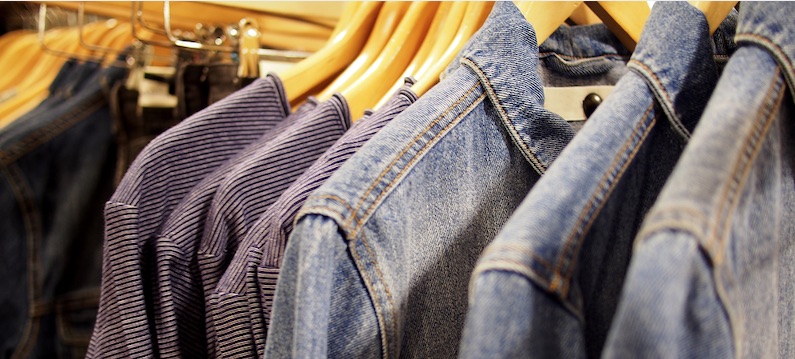
Apparel wholesalers and manufacturers often neglect digital marketing, focusing instead on trade shows and in-person events. This is a mistake.
A primary marketing vehicle for apparel wholesalers is exhibiting at trade shows. It means booking space, creating and printing marketing materials, funding travel, and entertaining clients — spending big bucks for a limited number of buyers.
Unfortunately, apparel wholesalers don’t typically devote an equal amount of money and effort to online marketing. This is a huge mistake. Exhibiting at a trade show can expose products to a few hundred buyers for a couple of days. Marketing online can expose those products to thousands of potential customers every day, worldwide.
I call this “manufacturers’ mentality” — i.e., just obtain orders and manufacture products. Many manufacturers and wholesalers view online marketing as a gamble. They spend the money and pray for results. And most of the time, the results are unsatisfactory because the manufacturers don’t invest in top talent, consultants, tools, and other resources.
But it doesn’t have to be that way. I recently took a startup apparel manufacturer from zero sales to hundreds of thousands — all with a small budget. It’s a simple strategy with, usually, seven components.
I’ll describe it in this post.
High-converting Website
The owner of fashion wholesaler recently told me that he spent tons of money on pay-per-click ads with insignificant results. The problem was high bounce rates on the home page and fewer than expected customer registrations. The site was unclear as to what kind of business it was and why a retailer would buy from it. New visitors — potential customers — could not understand. I impressed on the owner that he has just a few seconds to convince visitors to stay.
I suggested these steps:
- Have a dominant and clear message that explains the website.
- Treat the primary home-page banner as a booth display at a trade show.
- Have consistent colors and images.
- Use readable, traditional fonts — not trendy or old fashioned.
- Pay close attention to photography. It is the primary selling tool when prospects can’t touch a product.
The site should also emphasize compelling content.
- The “about us” section should explain what the company can do for customers.
- A “frequently asked questions” section is for selling. It should clearly address common buyer questions.
- Testimonials are for selling, too. Use them to explain your company’s top benefits.
- Non-gated pages should have keyword-based text and multimedia.
And the most important aspect of a high-converting website is having the right products that retailers want and need.
Search Engine Optimization
In my experience, most apparel executives know that search engine optimization is critical. They just don’t know how to do it.
To start, search on Google for important keywords, such as “wholesale clothing.” Then analyze the organic results. Why are companies on page 1?
For example, when a client asked why his site is not ranking for “wholesale clothing,” I pointed out that his page 1 competitor had 3.6 million backlinks from 903 referring domains. I explained that he needed to match or at least to get close to those numbers.
Google Ads
If you don’t have an experienced employee, consultant, or agency to run your pay-per-click advertising, use Google AdWords Express. Do not spend heavily on Google Ads (formerly, AdWords) without experience. You can quickly lose money. Start slow, with low budgets. Do not advertise worldwide, at least initially. Target a city or state, test the results, and expand from there.
If you are a fashion wholesaler — clothing, accessories, handbags, cosmetics — in my experience, most customers will come from five states, in this order: Texas, California, Florida, Georgia, and Illinois.
Email Marketing
For apparel wholesalers, at least 40 percent of sales should come from email marketing. Open rates should exceed 25 percent.
Emphasize transactional emails to follow up with buyers who create new accounts. Use the space to address your company’s benefits, promotions, and anything else that can help your company to stand out.
Social Media
Content creation and content promotion are equal parts of social media marketing. Create compelling content — how-to guides, fashion tips — to generate leads. And then promote it.
Which social media channels are best for fashion wholesalers? Here are my choices.
- YouTube because it is the number two search engine.
- Pinterest because it is more search engine than a social network.
- Instagram because it is visual and because most retail businesses have Instagram accounts.
- Facebook Groups because they are targeted with, typically, engaged members.
Influencer Marketing
Influencer marketing works for wholesalers in much the same say as for retail companies. But, in my experience, influencers for wholesalers are more professional — they cater to businesses — and have smaller followings, which make them more approachable.
Owners of Facebook Groups are often influencers. Working with those owners can be effective since the members are so engaged. Influencers’ YouTube channels can generate targeted traffic. But LinkedIn influencers are less effective.
Online Marketplaces
Fashion wholesalers often ask if they should join an online marketplace. Generally, the answer is always “yes.” Wholesale fashion marketplaces are a tremendous opportunity for growth. Typically, each marketplace has its own buyer niche, at least partially. And wholesale marketplaces typically offer attractive advertising options, including dedicated emails.
However, join a wholesale marketplace only if you are willing to invest time in updating your collection and adding new items. If you upload your collection once and then ignore it, marketplaces would be a waste of money — even for premium, attractive products.